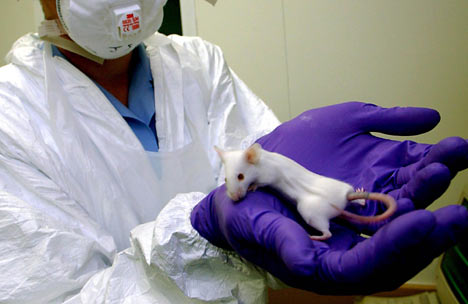Spanish scientists create "super-mice" that live 40 per cent longer
 Madrid - Spanish scientists have created "super-mice" that are cancer-resistant and live up to 40 per cent longer, media reported Friday.
Madrid - Spanish scientists have created "super-mice" that are cancer-resistant and live up to 40 per cent longer, media reported Friday.
The mice were subjected to genetic engineering by researchers from the cancer research centre CNIO and Valencia University.
The key to the experiment was an enzyme called telomerase, which lengthens chromosome ends known as telomeres.
Telomerase allows cells to keep dividing and is believed to increase longevity, but it also heightens the risk of cancer.
The mice were genetically engineered to be cancer-resistant while the amount of telomerase in them was increased.
As a result, the mice had better neuro-muscular coordination, less possibilities of developing diabetes and healthier tissues at an advanced age than ordinary mice. They also lived up to 40 per cent longer.
The relation between telomeres and ageing had been known since 1990, but this was the first time that the life expectancy of an entire organism has been lengthened, Maria Blasco, director of the study, told the daily El Mundo.
Similar techniques could allow humans to live 120 years, Blasco said. It was not, however, possible to apply the same method of genetic engineering to humans, she explained.
The study was published by the magazine Cell. (dpa)